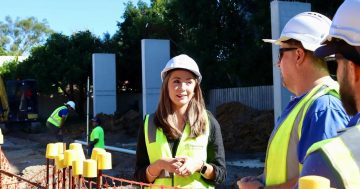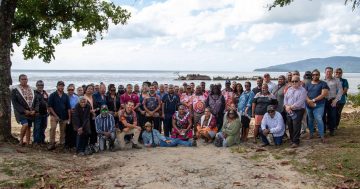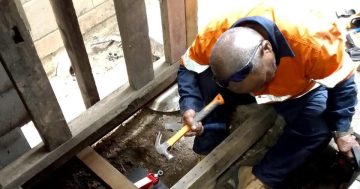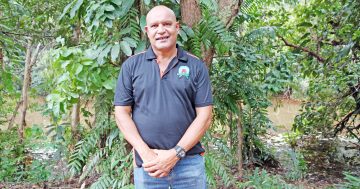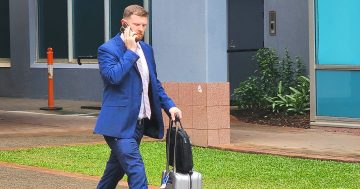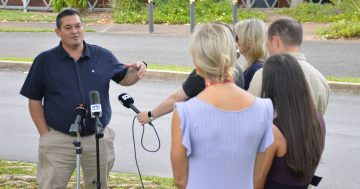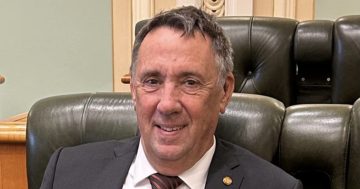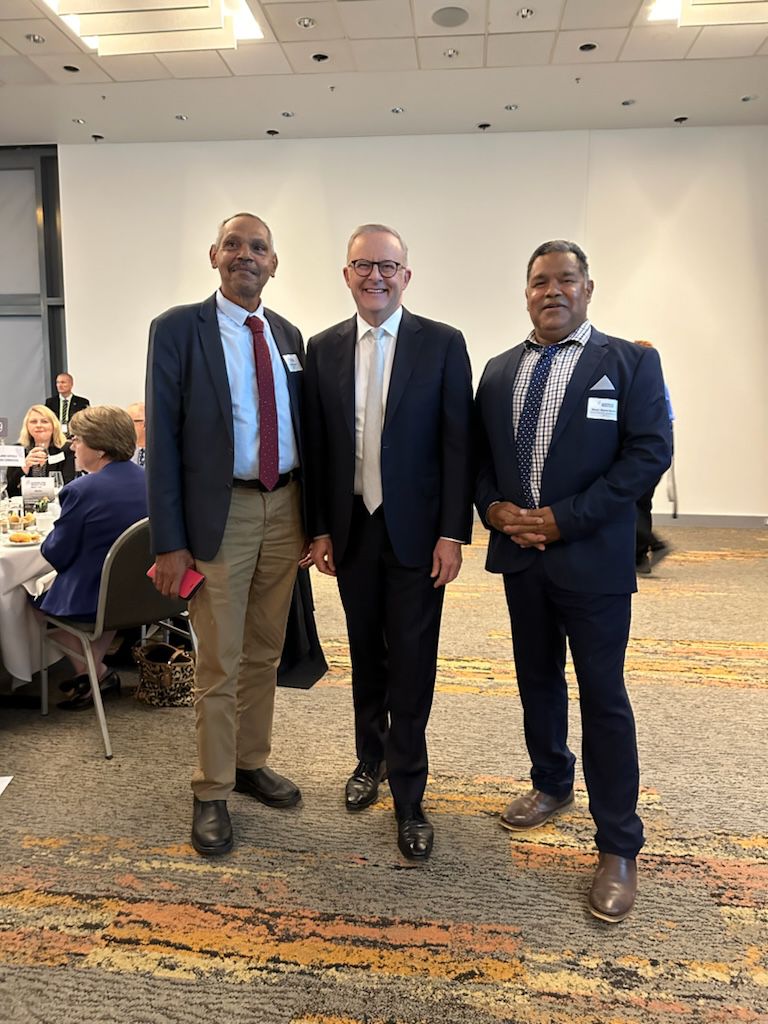
Lockhart River Mayor Wayne Butcher (right), pictured with Palm Island Mayor Alf Lacey and Prime Minister Anthony Albanese during a recent Brisbane meeting, says the Federal Government needs to make a commitment to Queensland after it announced a $4 billion Indigenous housing package for the Northern Territory. Photo: Supplied.
A Cape York mayor has used meetings with the Federal and State Governments to slam a “paternalistic approach” to remote social housing he says is failing Indigenous communities.
After meeting with Prime Minister Anthony Albanese and Queensland housing minister Meaghan Scanlon in Brisbane earlier this month, Lockhart River Mayor Wayne Butcher said he had no confidence either tier of government had the capacity to deliver remote housing across Cape York and the Torres Strait.
While the Queensland government is responsible for the provision of social housing, Mayor Butcher said he had used the meeting with the Prime Minister to ask whether he had plans to match the $4 billion recently committed to the Northern Territory for Indigenous housing infrastructure.
“I pretty much said the same thing [to him] that we’re in the same position as the Territory; the Cape and Torres are in the same situation,” he said.
“I really didn’t get an answer back from him.”
A journalist asked the Prime Minister the same question shortly after at a Queensland Media Club event, to which he provided a vague response stating “we’ve already got substantial deals for Queensland”.
Mayor Butcher said his meeting with Minister for Housing, Local Government and Planning, and Public Works Meaghan Scanlon had been an opportunity to provide direct criticism of the State Government’s controversial plan to use modular housing in remote communities.
The strategy has been ridiculed by some involved in remote housing construction and maintenance, with the boss of one Indigenous building company telling Cape York Weekly earlier this month the plan would kill off remote apprenticeship pathways and cost more than traditional dwellings over the life of the infrastructure.
“I’m not accepting any [modular buildings] in Lockhart, that’s number one,” Mayor Butcher said.
“It’s pretty well what that builder’s said; it doesn’t give us any employment opportunities, or it won’t give us any business opportunities for local builders, either.
“It’s a short-term fix to a long-term problem.
“We’re renovating modular homes that were put here 12 or 13 years ago, and the cost of renovating them and keeping them maintained because of overcrowding is huge; they aren’t designed for the environment.”
Minister Scanlon refuted claims the government was failing to engage with Cape York and Torres Strait communities about remote housing design suitability, and the impact modular dwellings would have on local apprenticeship and business pathways.
“Last week, we launched new actions co-designed with First Nations people to build more homes in remote communities, focussed heavily on opportunities for Indigenous-owned businesses, apprentices and traineeships,” she said.
“We’ve been very clear that we can’t keep doing the same things and expect different results, that’s why we set out actions that will deliver homes built by community for community; that includes building both traditional homes, and working with communities to design and build modular homes, if that is what they want.
“I’ll continue to work with Mayor Butcher about the homes, training and economic opportunities he’d like to see for his community in particular.”
A QBuild spokesperson said “the team is very keen to work collaboratively with all Indigenous councils to co-design and deliver modular housing that meets the cultural and environmental needs of their individual communities, if it is the appropriate solution for their community”.
Despite assertions from Minister Scanlon her government was committed to working with remote communities to delivery a workable solution, Mayor Butcher said it was a line he had heard too many times before.
“I don’t know why we keep reinventing the wheel, you know,” he said.
“Life is a circle in politics [and] I just keep seeing the wheel go around in circles.
“No wonder we can’t close the gap; we never will until we change the method of delivery.
“We need to change the paternalistic approach.”


